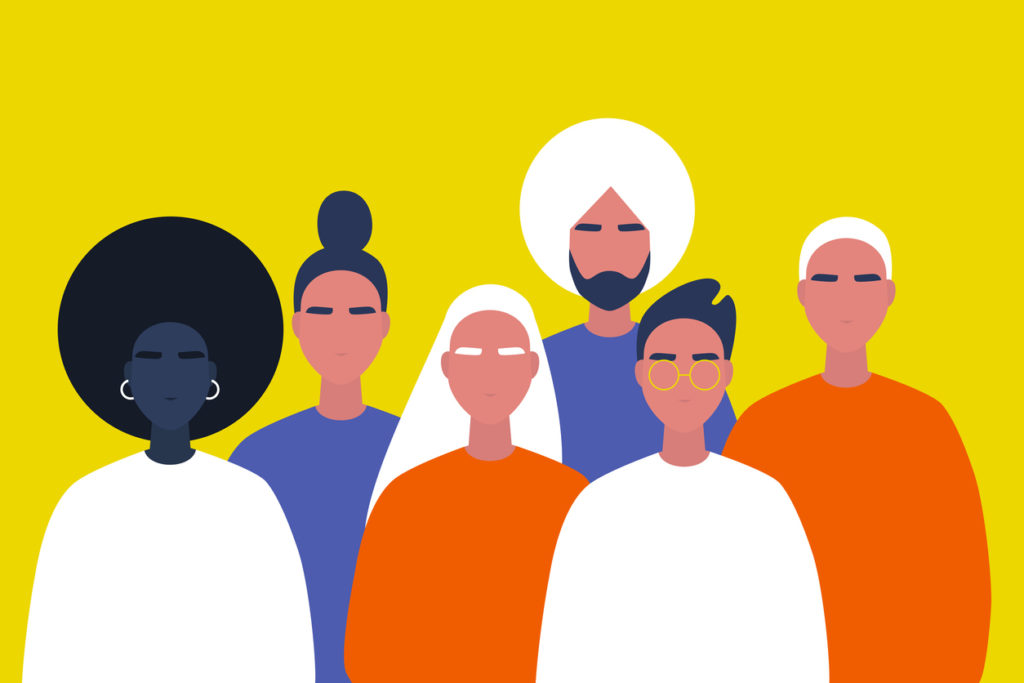Author: Matthew Skinta, PhD, ABPP
The U.S., like much of the world, is currently facing the challenge of becoming an increasingly polarized society. Divisive political rhetoric and biased language are common features of any news item.
This poses a challenge to both therapists and clients – is anything off limits, and if we’re going to have challenging conversations, how do we prepare ourselves for them?
Are behavioral approaches already personalized?
One common mistake contextual behavioral therapists make is to assume that an individual formulation means that cultural elements will arise as necessary or that no special effort is necessary to plan or educate oneself in advance.
This is a dance, however. Steven C. Hayes, PhD, and Dosheen Toarmino wrote a great piece on this 25 years ago for The Behavior Therapist, titled “If Behavioral Principles Are Generally Applicable, Why Is It Necessary to Understand Cultural Diversity?” In it, they note:
“Cultural practices are behavioral events considered in terms of their prevalence in a population and analyzed in terms of contextual features that affect the social propagation and maintenance of these behaviors.”
That is, even though every individual is unique, a shared culture means that some behaviors are more likely, and the meaning and context vary.
A white clinician who does not challenge themself to be aware of Black history, culture, and explore racist messages and behaviors they have been exposed to throughout life is not going to understand the context of a client’s life well enough to consider what is workable and helpful in a reasonably effective way.
The same is true for every identity in which a therapist belongs to a privileged group that differs from their client.
Finding Guidance to Move Forward
There are a number of phenomenal resources that have been developed in the ACBS community.
One area with the greatest growth has been how a provider responds to the experience of living in a world that has devalued your life and experience.
All humans carry a yearning to be safe, included, and wanted in their social groups. In my own work with sexual and gender minority (SGM) communities, I’ve highlighted the trap that gets formed through living in a culture that pathologizes and shames SGM people and the allure of working harder, perfectionism, and social desirability for acceptance by cisgender, heterosexual people. This temptation to behave or present ourselves in ways that we think will include us pulls us away from authenticity, vulnerability, or the ability to connect with our own values and efforts to create a meaningful life.
See also: Practicing Self-Care With Values-Based Action
As a gay man, I’ve had work experiences where other psychologists have made comments pathologizing SGM people or expressing discomfort.
How does a provider who is a part of a majority figure out where to start, though?
One model is through consultation or training groups with a dedicated emphasis on diversity themes, where you might have the opportunity both to reflect on your own identity and the social contingencies that shaped it, while having others provide feedback on emotions and experiences you seem to avoid. It can be difficult for anyone to realize they may have caused harm to others in their life, so for providers who value helping others it can be that much harder to consider that you are responsible for inadvertently harming clients who have come to you for help.
This leads to a variation on the classic acceptance and commitment therapy (ACT) question: Are you willing to feel what arises, without fighting the thoughts and emotions that come up in this very moment, to take a step in this meaningful direction of a more connected and loving world?
Learn Tools to Improve Your Work With Diverse Groups of Clients!
Recommended Reading:
Eliminating Race-Based Mental Health Disparities: Promoting Equity and Culturally Responsive Care across Settings
Edited by Monnica T. Williams, Daniel C. Rosen and Jonathan W. Kanter
Mindfulness and Acceptance for Gender and Sexual Minorities: A Clinician’s Guide to Fostering Compassion, Connection, and Equality Using Contextual Strategies
Edited by Matthew D. Skinta and Aisling Curtin
Mindfulness and Acceptance in Multicultural Competency: A Contextual Approach to Sociocultural Diversity in Theory and Practice
Edited by Akihiko Masuda
